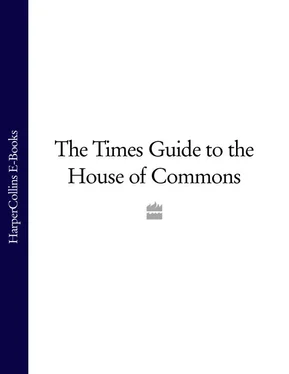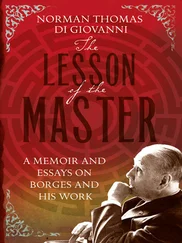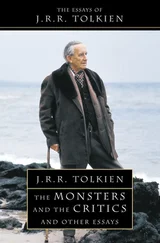The impact was deeply unsettling for the Lib Dems. It smacked of a crude attempt to divide the party’s senior ranks, signalling to its left-of-centre supporters to return to Labour’s embrace. Like many of Mr Brown’s initiatives, the strategy soon unravelled but it again called into question the judgment of Sir Menzies and his closest adviser, Lord Kirkwood of Kirkhope, both of whom had presented his long-time friendship with Mr Brown as an asset.
Another unnerving factor for the Lib Dems was the unfolding narrative of the prosecution of their biggest donor, Michael Brown, whose donations of £2.4 million doubled their 2005 election budget. He was later convicted of money-laundering and theft and some wealthy investors who were his clients demanded that money be returned to them by the Lib Dems, who insisted that they had taken, and spent, the money in good faith. The episode severely damaged the Lib Dems’ attempts to portray themselves as political reformers.
Under Sir Menzies’ leadership, his party’s poll ratings drifted slowly downwards, from 20 per cent in March 2006 to 15 per cent in the summer of 2007 and even 12 per cent that autumn, according to Populus, although they rose before and afterwards. When Mr Brown flirted with but abandoned a snap autumn election, Sir Menzies saw his chance and announced his resignation, knowing that his party had breathing space to elect his successor. His 18-month tenure, while difficult, saw important advances. Most notably he promoted to key spokesmanships and party positions a new generation eager to inject credibility on policy and greater professionalism into its organisation at Westminster: MPs such as David Laws, Ed Davey, Norman Lamb, Vince Cable and Nick Clegg. The forthcoming leadership election gave them a chance to complete their grip on the party’s levers of power.
There was little doubt that this new generation would choose as its champion Nick Clegg, a former MEP who entered the Commons in 2005, took an erudite interest in policy, was articulate and effective on television but had a restless disrespect for convention and a keen appetite for reform. As Sir Menzies had, Mr Clegg began in the uncomfortable position of front-runner and, like him, faced a formidable challenge from Mr Huhne. Mr Clegg’s campaign was cautious, holding back from his instinct to offer a bold, modernising agenda for fear of jeopardising his lead; Mr Huhne’s was slightly populist and overtly aggressive, attacking his rival for “flip-flopping”. His supporters at one point issued a rebuttal document entitled Calamity Clegg. The result was uncomfortably close, with Mr Clegg winning by about 500 votes.
Another by-product of the campaign was that the Lib Dems emerged with a new celebrity. Vince Cable, who was elected the party’s deputy leader in place of Sir Menzies, found himself standing in at Prime Minister’s Questions during the interregnum that followed his resignation. Dr Cable, who harboured leadership ambitions of his own before reluctantly ruling himself out because of his age, seized the moment.
His first attempt, when he cracked a joke, fell slightly flat: humour in the charged atmosphere on the floor of the House requires split-second timing and the ability to catch a mood. Undeterred, he tried again the following week. Mr Brown, having cancelled the autumn election, was embroiled in a scandal of hidden donations to Labour and the loss of child benefit records for 25 million families. “The House has noticed,” Dr Cable began, “the Prime Minister’s remarkable transformation in the last few weeks from Stalin to Mr Bean, creating chaos out of order, rather than order out of chaos.” The Commons collapsed into laughter. Vince Cable became a household name almost overnight.
Mr Clegg, like all new Lib Dem leaders, struggled to make an impact with the electorate, often finding himself in the shadow of his energetic deputy leader, whose profile rose throughout the financial crisis that engulfed Britain’s banks from autumn 2008. To frame the party’s response to the economic crisis Mr Clegg convened a small group of experts and advisers; Vince Cable was a prominent member but Mr Clegg insisted on chairing it himself, asserting his authority rather than deferring to his more experienced deputy.
He took care to stay close to Mr Huhne, seeking his counsel often and holding him close rather than allowing any rift to open between them; Mr Huhne repaid him with loyalty. Meanwhile, Mr Clegg’s allies were given key roles: David Laws played an increasingly key role in policy development, Ed Davey took charge of communications and Danny Alexander, who impressed Mr Clegg while working on his leadership campaign, became his chief of staff. Among backroom allies, he relied most on John Sharkey, a former advertising executive, for language in interviews and speeches; Polly MacKenzie to write his speeches; Jonny Oates for strategic media advice; Leana Pietsch on how issues would play in the press; and Alison Suttie to organise his office. This latter role was key: Mr Clegg, with three young children and impatient with the after-hours culture of the Commons, was ruthless in prioritising his diary and insisted on having time to take his boys to school or put them to bed, even if it meant returning to the Commons later. Much key party business was decided in conference telephone calls, with several advisers asked to ring a number with a PIN code at a given time for a focused discussion with the leader. It meant that the demands of managing a difficult and disparate party were contained and he could concentrate his energies elsewhere.
Mr Clegg’s approach was to develop an irreverent, anti-Establishment edge to the Lib Dems, both as a strategy for being noticed and to differentiate himself from Labour and the Conservatives: when standing for leader he pledged to go to prison rather than comply with a national identity card register. This meant embracing some future hostages to fortune: opposing the replacement of the Trident nuclear deterrent, on which Mr Huhne had campaigned, and an “earned amnesty” for illegal immigrants, developed by Mr Clegg himself while home affairs spokesman. The latter, in particular, cost the Lib Dems many votes. Other key policy developments included dropping a symbolic commitment to a new 50p top rate of income tax, agreed under Sir Menzies’ leadership and later implemented by Labour. Instead emphasis shifted towards taxing wealth, such as pensions contributions and capital gains, and exempting people earning beneath £10,000 a year from paying tax altogether, a policy revived from the 1997 manifesto. Mr Clegg made a further priority of improving education provision for children from poorer families.
An early test of his mettle was over Europe: Mr Clegg ordered his MPs to abstain on a Commons vote on whether the Lisbon treaty should be subject to a referendum, for which the Conservatives were campaigning. Several Lib Dems had pledged to constituents that they would back a referendum and could not comply, notably David Heath, Tim Farron and Alistair Carmichael in his Shadow Cabinet. Mr Clegg would not submit to a fudge by allowing them a free vote and accepted their resignations when they were among 15 Lib Dems to vote in favour.
If this episode was oblique, the issue that next introduced Mr Clegg to the voters was anything but. The Lib Dems inflicted on Gordon Brown his first significant Commons defeat, using one of their opposition days to table a motion to allow ex-Gurkha soldiers the right to live in Britain. The issue was simple for voters to understand and had the added appeal that the Gurkhas were backed by the television actress Joanna Lumley. Mr Cameron raced outside the Commons to join Mr Clegg celebrating with Ms Lumley for the television cameras. Mr Clegg again made waves by demanding the resignation of the Speaker, Michael Martin, over his inept handling of the MPs’ expenses scandal, the first party leader in modern political history to do so. He appeared about to find his voice just at a moment when Conservative support was slipping while Mr Brown remained a deeply divisive Prime Minister. Yet his pre-election conference missed this opportunity, with several errors. Mr Clegg unwisely urged “savage” cuts in public spending, and appeared to ditch a commitment to scrap university tuition fees but was forced to back-track after a party backlash. Vince Cable provoked anger from MPs by unveiling, like a magician pulling a rabbit from a hat, a “mansion tax” on houses worth more than £1 million, later modified to £2 million.
Читать дальше












